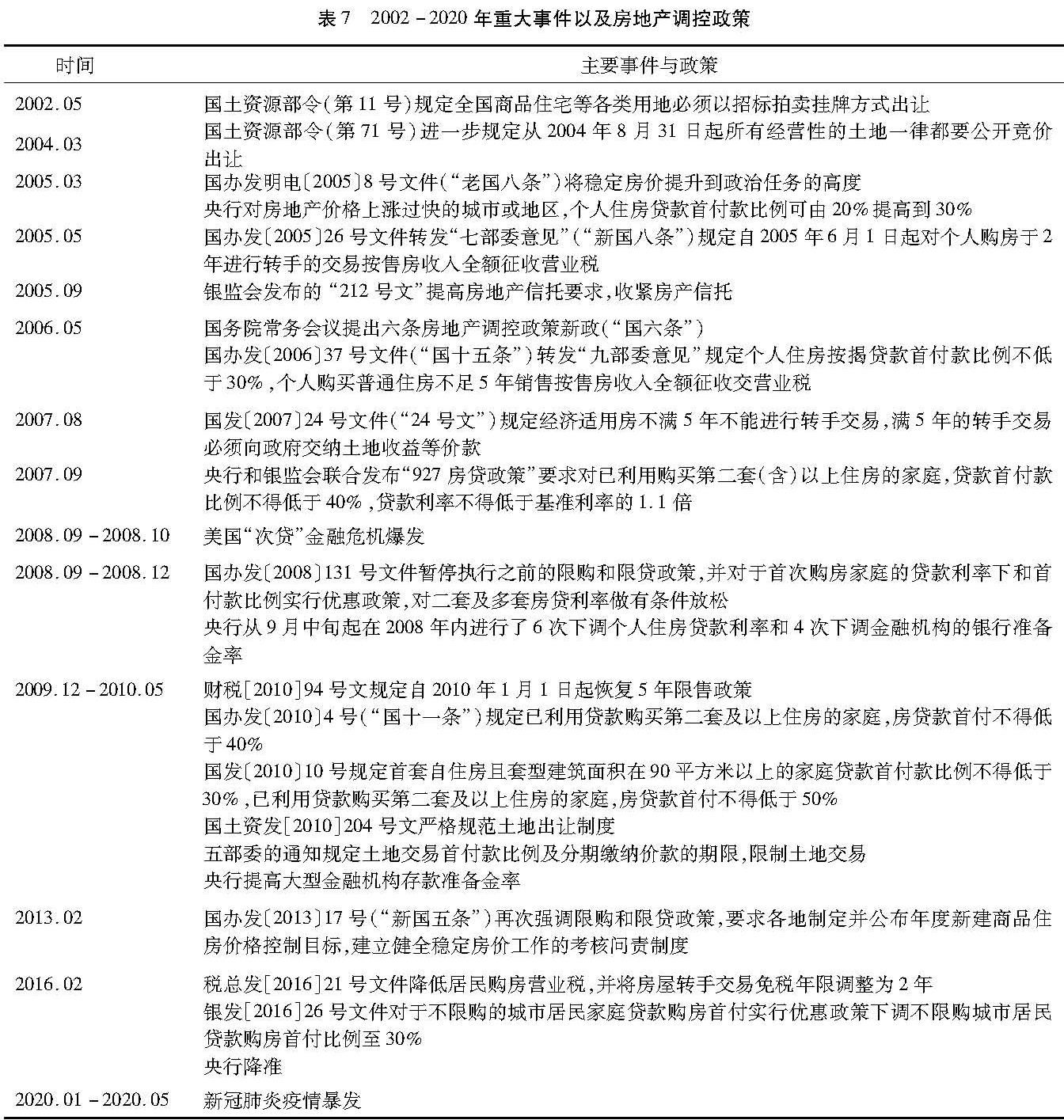基金项目,其中以昆明理工大学杨大禹教授主持的国家自然科学基金项目“历史文化村镇遗产及其文化生态保护的研究与示范”、王东主持的国家自然科学基金重点资助项目“可持续发展的中国人居环境的基本理论与典型范例”、吴声军主持的国家社会科学基金重点项目“扩大和稳定我国中西部水资源储养能力的文化对策研究”、周真刚主持的国家社科基金项目“西南民族特色村寨永续发展研究”最具代表性。 图1 国内发表“生态建筑文化”研究论文趋势 图2 国内发表的以“生态建筑文化”为研究主题的文章数量 在研究机构发文量数据的排名中,排名前6位的分别是西安建筑科技大学(23篇)、重庆大学(13篇)、湖南大学(13篇)、天津大学(13篇)、同济大学(12篇)和广东工业大学(9篇),此6所大学都为专业优势很强的重点院校。此外,共有14个机构发文量超过8篇,多数为“211”工程理工科院校(表1)。 表1 国内研究机构发表“生态建筑文化”文章数量 在学术研究中硕博毕业论文的作者是该领域研究未来的核心力量,是生态建筑文化研究的希望,未来成果也仓箱可期。20世纪90年代以来,据统计知网公开的博士学位论文中,仅有20篇以生态建筑文化为研究主题,西安建筑科技大学何泉博士、重庆大学刘敏博士、天津大学李建斌博士最具代表性。除此之外,生态建筑文化相关研究硕士毕业论文共计116篇,发文单位分列前10位的分别为西安建筑科技大学、湖南大学、重庆大学、合肥工业大学、武汉理工大学、天津大学、大连理工大学、哈尔滨工业大学、太原理工大学和长安大学。 期刊载文中,生态建筑文化研究相关论文数量的期刊排名如表2所示。从表2可见,排在前5位的分别是《山西建筑》(18篇)、《华中建筑》(16篇)、《中外建筑》(13篇)、《西安建筑科技大学学报》(13篇)、《建筑与文化》(12篇)。这也为学者投稿选刊提供了一定的启示。 表2 国内刊发“生态建筑文化”研究文章的期刊及篇数 核心期刊是评价学科研究水平高低的一个关键因素,生态建筑文化相关研究论文中知网收录的核心论文,约占总发文量的11.2%。间接反映出当下生态建筑文化研究的水平不够高,研究者需钻坚仰高,提高论文质量。发文年份分列前3位的分别为2014年(12篇)、2010年(10篇)、2011年(7篇)。值得一提的是,2014年发文量最高为12篇,占C刊发文量的14.1%。数据反映出生态建筑文化在2014年研究水平处于高点,间接反映出研究水平起伏不定。但是,核心期刊不能作为衡量文章质量与水平的唯一标准。部分文章被引量超过诸多核心权威期刊,何泉发表的博士论文《藏族民居建筑文化研究》被引133次; 李建斌发表的博士论文《传统民居生态经验及应用研究》被引101次,沙润发表于《地理科学》上的论文《中国传统民居建筑文化的自然地理背景》被引111次。 影响因子是期刊评价的一个重要因素,其中期刊发文被引频次则是影响因子高低的关键性指标,在一定程度上被引论文量客观反映出研究者在研究领域的水平。20世纪90年代以来,研究生态建筑文化相关论文被引频次排名前5位的论文如表3所示。 表3 以“生态建筑文化”为关键词的论文被引次数 2 研究内容与视角 2006年,王蕾、姜曙光[3]在《绿色生态建筑评价体系综述》一文中,详细介绍了国内外绿色生态建筑发展的现状,同时综合分析了欧美等国家主要生态建筑评估体系,并对我国目前生态建筑文化评价体系研究提出了未来的发展方向。1997年,顾孟潮[4]在《中国当代建筑文化十年(1986-1996 )记述》一文中,介绍了国内十年生态建筑文化研究与动态的三个里程碑,重点论述了生态建筑文化的特征与本质,并提出建立建筑科学大部门的问题。该文是知网收录的为数不多的关于生态建筑文化的述评研究。目前“生态建筑文化”的研究成果,研究视阈主要包含以下五个方面。 2.1 生态建筑文化对地域文化的影响 人类生活的环境是一个大的文化生活体系,而地域文化既是这个大的生态环境文化的一个组成部分,又是一个独立的生态文化环境,地域性的生态建筑最具代表性。杨国才[5]以文献与调研为基础,对白族古村“诺邓”的传统文化与生态建筑现状进行详细分析,并从未来前景、经济发展、旅游规划、文化传承四个方面深入分析了白族“诺邓”古村生态环境保护的理论意义与实践价值,提出了白族古村“诺邓”未来项目建筑发展与措施。龙佑铭[6]以贵州民族建筑为研究题材,基于“万类有命”的生态哲学思想、技术数理意涵与历史演变三方面,分析了贵州建筑中生态文化的应用逻辑,揭示了贵州建筑的核心价值,体现了贵州建筑生态文化性的重要作用。马宗保、马晓琴[7]介绍了西北少数民族地区传统聚落的生态文化,详细分析了西北地区建筑营造中的生态智慧与建筑材料的选用,反映出西北地域居民简朴的生活理念,从可持续发展的角度,揭示了“生态建筑文化”的意义。张慧[8]博士以先秦时期为背景,“天人合一”的生态哲学思想为核心,先秦诸家生态思想为体系,儒、道两家为研究对象,详细分析了传统建筑生态伦理、生态建筑地域文化、生态科学思想,并从实践微观方面梳理了早期先秦建筑、园林、城市的生态理论与思想,为今后生态建筑文化的研究提供了宝贵的思路与启示。李泉[9]以西藏民居建筑文化为研究对象,运用人类学、宗教学等学科,分析了藏族民居中生态建筑文化的重要问题,并为建筑传统文化的传承与生态建筑的发展提出了方向,为相关研究提供了积极的研究方法。 2.2 生态建筑文化与传统民居文化的共性解读 传统民居是当下热门研究对象,受古人“天人合一”思想的影响,中国传统民居的营造,始终把尊重生态自然环境放在第一位,用不同的材料、形式、技术应对不同的生态环境,形成了不同建筑民居特色的生态建筑文化。张献萍等[10]以巩义杨树沟民居为例,从民居与生态环境和谐共生、历史文化、建筑设计、建筑室内等方面,具体分析了传统生态建筑文化的营造趋势,揭示了生态建筑文化特有的文化内涵与生态基础。韦宝畏等[11]从民居建筑生态文化视角,对朝鲜族传统民居的选址、空间营造、趋吉避凶的文化进行详细的分析,重点阐述了朝鲜族传统民居文化生态内涵,提出了人居环境可持续发展的观点,为今后研究提供了重要的启示与方向。夏晋等[12]对湖北通山宝石村传统古民居生态环境、人文环境与空间营造现状进行分析,从生态可持续角度出发,通过实地考察,探寻通山宝石村生态建筑文化的形成与规律。沙润[13]讨论了传统生态民居文化中形式、特殊与客观生态环境中地貌、气候、水纹的关系,详细分析了传统生态民居建筑文化中的自然生态观,客观揭示了自然生态与建筑民居环境之间相互平衡和谐的重要性。潘慧羽[14]以老君山傈僳族传统民居为例,详细分析了老君山傈僳族传统民居的空间营造、建筑技术、生态环境等方面的现状,同时从环保理念、绿色建筑、设计参与等角度提出了建议,为绿色生态建筑更新方面提供了依据。 2.3 生态建筑文化与城市规划互动性分析 在生态建筑文化的影响下,城市选址、规划、景观设计等形成了完善的体系。杨琰瑛等[15]对国内外生态城市建筑规划现状进行了详细分析,并以生态城市、生态社区举例说明,从战略规划、绿色出行、技术水平、产业结构、保障措施等方面对国内外生态建筑规划进行比较,同时对生态建筑文化中的生态建设提出了短期建议。俞孔坚等[16]介绍了生态建筑文化中生态设计的概念,详细分析了生态设计地方性、节约资本的原理,提倡人人都是设计师、人人参与设计。沈清基等[17]对国内外研究动态进行了详细分析,认为生态型城市规划是对当前生态建筑发展的重要标准之一,同时以上海为例,分析了生态城市建筑规划的标准体现。张迎甫[18]以神垕镇钧瓷文化创意产业园生态建筑景观设计为例,重点阐述了其设计方案,体现了区域景观规划中生态建筑文化特色,同时也反映了生态建筑文化发展的历史文脉传承。李洋等[19]以云南省玉溪市通海县河西镇为研究对象,对河西镇民族历史文化、空间构建形态进行了详细系统的分析,从整体格局、生态文化、街巷空间、建筑文化等方面提出了具体措施。 2.4 生态建筑文化对建筑设计发展的影响 研究生态建筑文化对地域文化的影响一直是建筑学、历史学等诸多学科共同关注的热点视阈。部分研究者将绿色生态与建筑设计联系在一起,通过案例分析生态建筑文化对建筑设计发展的具体作用。吴文捷[20]从建筑功能布局、建筑环境的塑造等方面分析了南京财经大学新校区公共教学楼设计,体现了生态建筑文化中物质、文化、精神三者的联系。师宏睿[21]以绿色生态建筑为主题,并使用图书馆建筑设计实例,详细阐述了其内涵、趋势与发展现状,为今后生态文化图书馆设计提供了参考方向。刘红霞[22]介绍了蒙古包建筑中天窗、包门、哈那、乌尼四个构建,详细分析了蒙古包建筑的生态文化适应性与建筑生态空间,揭示了生态建筑文化中人与环境之间的相互作用关系。刘静静[23]讨论“反规划”在当今图书馆建筑布局中的重要设计思路,分析了其当前的现状与未来的方向,指出生态建筑文化在公共图书馆建筑中的重要作用,体现了建筑设计与生态环境的和谐之美。刘梦颖[24]对爱沙尼亚的文化、历史、民族、地理位置进行了详细的分析,具体研究了其乡土建筑类型,对我国乡土建筑保护与建设有着借鉴意义,同时体现了生态建筑文化研究的重要性。 2.5 生态建筑文化与传统风水文化的相似性解读 当今人类在追求生活品质的同时越来越重视绿色生态问题的发展。中国文化历经上下五千年历史沉淀,形成了一套对生态自然环境研究总结的理论文化体系,生态建筑文化在兴起不久,就发现从观点和主题上与中国传统风水文化有着相似之处,两者都是追求生态环境与人类活动场所的统一与协调。19世纪80年代,天津大学王其亨教授从建筑文化、生态规划、绿色环境等方向编写了《风水理论研究》一书,书中汇集了有关传统风水文化的论文23篇,从传统风水文化角度分析了生态建筑文化的适用性,涉及生态建筑文化起源、城市生态规划、外部生态空间设计和建筑心理场,以及在建筑美学等领域中的实践运用,在国内学术界引起了强烈反响[25]14。汉宝德教授推出了《风水与环境》《中国建筑文化讲座》等,认为生态建筑是文化的上部结构,传统风水文化对乡村之配置有着根深蒂固的影响,同时追求环境形式的和谐,揭示了中国生态建筑文化在建筑、景观和城市规划三者发展中的重要作用,在生态建筑文化与传统风水文化关系研究思路上引人注目[26]177,[27]50。西安建筑科技大学祁嘉华教授的《中华建筑美学-风水篇》一书,将传统风水文化视为前人研究过程中的人居环境美学,从人居环境美学、风水思想美学、建筑美学、诗艺等多个领域分析生态建筑文化与传统风水文化的现实意义[28]26。亢亮[29]认为生态建筑文化与传统风水文化中“天人合一”的宇宙观有着根本的一致,揭示了中国古代的生态理论中追求人与自然协调与合作的关系。亢羽等[30]以传统风水文化与生态建筑文化的基本取向为研究视角,认为传统风水文化揭示了人与生态环境交互感应的现象,间接反映了现代生态学思潮的价值取向。史箴等[31]详细介绍了传统风水理论中的生态观点与文化思想,认为传统风水理论中“天人合一”的宇宙观与生态建筑文化有着根本的一致,揭示了生态建筑文化中人、建筑、自然、社会的相互关系。 3 存在问题与建议 通过比较分析20世纪80年代以来国内“生态建筑文化”的研究现状与视角,发现其中存在的问题,并提出建议。 3.1 存在问题 (1)偏重物质,忽视精神。随着科技的发展和生活水平的提高,崇尚物质的观念尤为突出,生态建筑文化的研究方向也在一定程度上趋于物质化,忽视了其精神方面与可持续发展的生态思想。一部分生态建筑文化研究者主张消耗自然生态资源,创造人为的生态建筑文化来迎合当今高消费高收入群体的物质观念,忽略了生态建筑文化中的承载力与精神层面的发展,给自然环境带来了污染,造成能源无节制的浪费。一部分研究者认为生态建筑文化应朝着高技术、高科技、智能化的方向发展,利用不断发展进步的科技改变人们的生活环境与方式,忽略了生态建筑文化中人与自然之间和谐共生关系,使人类脱离自然环境的客观存在,有碍于生态建筑文化可持续发展的精神目标。部分观点偏重生态建筑文化中物质方面的研究成果,严重忽视了精神方面的客观存在,脱离了研究生态建筑文化的初衷,让一些研究者在研究的道路上很难找准正确的方向。 (2)重西方体系、轻东方研究。近代受“西学东渐”与西方生态理论的影响,国内生态建筑文化研究方向上趋向于西方理性思维模式,大部分研究者的研究重点偏向于西方生态建筑中的技术水平、建筑形式,瑞士现代主义建筑大师勒·柯布西耶的模数理论对国内生态建筑文化研究有着深远的影响。研究发现,西方建筑文化有明确的理论体系,追求建筑自身的气势,从感官上获得庄严、权威的效果。相比西方,国内生态建筑文化在理论体系上有一定的劣势。目前大部分研究方向忽视了我国传统生态文化思想在生态建筑文化中的研究价值,中国生态建筑文化受传统自然观、生命观的影响,形成了“天人合一”的传统生态建筑文化思想体系,是借助外界客观自然环境使建筑与环境两者达到互相融合、相互适应的目标。部分研究方向忽视了我国传统生态文化思想在生态建筑文化中的体现,甚至将传统生态建筑文化理解成过时的文化,在研究上盲目地借鉴西方观点,脱离了客观科学的原则。 (3)研究水平偏低,视阙局限。生态建筑文化自提出以来得到研究者的广泛关注,随着研究时间的推移,该领域也逐渐出现大量学术成果。基于现有生态建筑文化的研究成果分析,文章年发文量偏低,其中刊发于核心期刊的文章占总发文量的15.2%,多数文章篇幅过短,研究深度不够,间接反映出了核心等权威期刊比例较少,研究成果及水平处于初级阶段。研究深度、文章整体水平有待提高。此外,整体学术研究水平偏低还体现在以生态建筑文化为主题获批立项的省部级以上课题数量较少。 在国内以生态建筑文化为主题的研究学术成果中,单一研究生态建筑文化的论文有31篇,分析传统民居与生态建筑文化关系的论文有13篇,分析生态建筑文化与建筑设计联系的论文有21篇。尤其值得我们关注的是硕博毕业论文,其中建筑科学与工程专业共123篇,占82%,旅游专业有4篇,占2.67%,环境科学与资源利用专业3篇,占2%,档案及博物馆专业2篇,占2%,文化专业1篇占0.67%(表4)。 表4 国内以“生态建筑文化”为题材的硕博论文学科比例分布 通过文献研究发现,一些论文内容研究深度不够,尽管在表述形式上独出心裁,但文章缺乏观点,研究视角单一,对数据分析理解不够深入。研究生态建筑文化的硕博论文,发现研究专业集中分布于建筑科学与工程方向,其他专业综合研究较少,加上研究方向较为陈旧,部分研究曲解了生态建筑文化的初衷,这让研究者在研究过程中走了弯路。 (4)研究机构地域分布不均衡,人才缺乏。在已有的研究成果中,发现研究国内生态建筑文化的学者主要来自西安、重庆、天津、长沙等地区,代表机构天津大学、西安建筑科技大学、重庆大学、湖南大学等,反映出区域分布不均衡的特征。西安建筑科技大学在生态建筑文化研究方面一直在全国名列前茅,祁嘉华教授倡导创立了迄今为止为数不多的建筑文化研究所,为推动生态建筑文化科学化和现代化的研究起到了积极的作用。虽然有许多突出的代表机构、协会,但从地域上分析只是零星的几个城市、机构,缺乏区域上的发展,呈现出地域分布不均衡的问题。笔者以为,研究者应该加大学术研究深度、广度,加强学术交流,完善机构建设,研究上以“点”带“面”,努力打破地域研究不均衡的现状。 一门学科的发展离不开人才的推动。纵观21世纪生态建筑文化的研究现状,新一代学术研究人才缺乏是影响生态建筑文化发展的重要原因之一。老一辈研究者对新一代研究人员缺乏正确引导与扶持,导致生态建筑文化长期处于人才缺乏的状态,其中理论研究有深度、拥有实践经验、学科间能融会贯通的综合性人才匮乏。大部分研究者对生态建筑文化停留在初级理论研究阶段。与此同时,研究人才的缺乏直接导致核心权威期刊发文较少,其中大部分国内学术研究者中,缺乏独立创新观点研究成果,多数沿袭前人的观点,间接影响研究纵深、项目课题申报和成果质量。生态建筑文化未来将面对人才短缺的问题,加强研究,打破地域、学科、研究层次的局限,扩大研究范围,可以为生态建筑文化发展提供高质量、有影响力的人才。 3.2 建议 (1)节俭物质,完善精神。研究生态建筑文化不能将研究重心完全偏向物质方面,一味的追求物质形式的华丽与工业技术的发展,而忽略了中华民族传统美德中节俭与生态可持续发展的重要价值观,脱离了生态建筑文化中的人文精神价值。研究生态建筑文化必须坚持树立精神与物质科学客观的态度,建立可持续发展的目标,反对崇尚物质消费的观念,树立正确的消费价值观,更好地继承与发扬中华传统节俭美德,在生态建筑文化研究中重新权衡经济的地位与作用,建立人与自然之间的和谐研究观念,继承与发展古人“天人合一”的生态建筑模式。呼吁研究者结合精神文化的视角客观地研究生态建筑文化的价值与意义,鼓励绿色生态研究。研究者应具备节俭的物质研究态度,不断完善精神层面的研究,积极提倡研究者的精神价值与合理物质文化的追求,为今后研究生态建筑文化提供一个更加合理的方向。 (2)继承传统,中西交融。研究生态建筑文化不能对我国传统生态建筑文化一味地排斥,盲目地认同西方观点去抄袭。同时,为传统观点而去守旧的继承也是同样不可取的。美籍华人建筑师贝聿铭先生设计了上百座建筑,在苏州博物馆设计中,结合了苏州传统生态建筑风格、当地文化与西方建筑技术的特点,体现了中国与西方生态建筑文化交融。日本建筑师安藤忠雄主张生态建筑设计“共生的思想”理念,以期创造出自然环境与建筑本身中共生的概念。在生态建筑文化发展的历史中,没有哪一个文化不受过外来文化的影响,中西生态建筑文化既有钢筋混凝土与生态自然观对立的一面,又有技术、文化相互依存的另一面。继承我国传统生态建筑文化,不能以守旧的态度去面对,而是要“古为今用”,为当今生态建筑文化研究带来新启示。生态建筑文化是建筑发展过程中价值的体现,因此,我们应科学地继承我国传统生态建筑文化中被遗忘的精华,汲取创新的源泉,打破中西生态建筑文化之间的界限,在中西“合化”的基础上,形成有利于当今生态建筑文化发展的研究体系。 (3)扩展视阙,提升水平。国内生态建筑文化研究者不能一味地追求文章数量,应该深入研究思考,发表高质量的学术研究论文。研究国内生态建筑文化应融合园林、植物、天文、地理、气象、建筑等学科知识点,从而促进研究纵深。与此同时,鼓励更多的在校硕士生和博士生投入到生态建筑文化研究之中。高校相关专业研究者应努力提高科研能力,把研究内容转化成学术成果。学科带头人应打破传统地域界限,组织优秀人才团队申报高层次课题,争取在国家级基金项目取得突破,提升生态建筑文化研究的学术影响力。 20世纪80年代以来,生态建筑文化研究趋势发展较单一。在这样的趋势背景下,生态建筑文化的研究应寻找新思路、新方法,开拓新的研究视阙。古人对生态建筑文化的研究热衷于水文地理、气象学、天文学、自然观、医学等学科,折射出古代早期研究者对生态建筑文化研究领域的涉及已是洋洋大观了。因此,研究者不妨以古人“天人合一”的思想理论为切入点,潜心研究生态建筑文化中重要的部分,正视其存在的意义。尽管生态建筑文化研究学者辈出,理论研究成果众多,但理论与实践相融合的高层次研究成果还不多,这也是研究者仍应努力积累的方向。 (4)加强交流,培养人才。生态建筑文化研究区域上呈现研究分布不均匀的现状,笔者建议应该加强交流,成立学术组织,吸纳年轻人才。应多举办知名学者讲座,积极推介研究的科学成果。打破地域、学科限制吸引更多的优秀人才加入到研究队伍之中。 生态建筑文化研究中应该克服限制,加强交流,培养新老梯队人才,为进一步学术研究提供更好的条件。同时生态建筑文化是中国传统文化的一个重要组成部分,学界研究者大部分是多学科研究方向,缺少对生态建筑文化研究的广度、深度,特别是研究专一性较弱,因而提倡研究者对生态建筑文化研究的连续性、阶段性。与此同时,生态建筑文化蕴含着中国传统文化的精华,有很大的研究空间值得去挖掘,研究者应站在传统文化更广的视阙进行研究,为生态建筑文化中的智慧正名。 参 考 文 献 [1]胡慧. “天人合一”观与中国乡土建筑生态观的研究[J].安徽农业科学,2009(36):8256-8257,8287. [2]张群,王钰萱,梁锐. 中美绿色建筑评价标准校园体系比较与优化建议[J].西安建筑科技大学学报(自然科学版),2017(3):416-421. [3]王蕾,姜曙光. 绿色生态建筑评价体系综述 [J].新型建筑材料,2006(12):26-28. [4]顾孟潮. 中国当代建筑文化十年(1986-1996)记述[J].时代建筑,1997(2):42-45. [5]杨国才. 白族千年古村“诺邓”的保护与发展研究[J].云南民族学院学报(哲学社会科学版),2002(2):67-74,121. [6]龙佑铭. 贵州民族建筑的生态智慧探析[J].贵州社会科学,2019(8):94-99. [7]马宗保,马晓琴. 人居空间与自然环境的和谐共生——西北少数民族聚落生态文化浅析[J].黑龙江民族丛刊,2007(4):127-131. [8]张慧. 先秦生态文化及其建筑思想探析[D].天津:天津大学,2009. [9]何泉. 藏族民居建筑文化研究[D].西安:西安建筑科技大学,2009. [10]张献萍,杨卫红,白宪臣. 传统乡土建筑的生态资源价值与可持续性分析——以河南巩义杨树沟民居为例[J].河南大学学报(自然科学版),2011(4):437-440. [11]韦宝畏,许文芳. 朝鲜族传统民居的文化生态内涵探析[J].中华文化论坛,2016(3):134-138. [12]夏晋,周浩明. 鄂南传统民居建筑的生态适应性营建调查与分析——以“楚天第一古民居群落”宝石村为例[J].湖北社会科学,2018(5):192-198. [13]沙润. 中国传统民居建筑文化的自然地理背景[J].地理科学,1998(1):3-5. [14]潘慧羽. 丽江老君山傈僳族传统民居的生态建筑经验与绿色更新[J].云南民族大学学报(哲学社会科学版),2013(3):52-56. [15]杨琰瑛,郑善文,逯非,等. 国内外生态城市规划建设比较研究[J].生态学报,2018(22):8247-8255. [16]俞孔坚,李迪华,吉庆萍. 景观与城市的生态设计:概念与原理[J].北京:中国园林,2001(6):3-10. [17]沈清基,吴斐琼. 生态型城市规划标准研究[J].城市规划,2008(4):60-70. [18]张迎甫. 文化创意产业园的生态设计及文脉传承——神垕镇钧瓷文化创意产业园景观设计[J].北京:装饰,2013(5):139-140. [19]李洋,杨大禹,施润,等. 云南历史文化村镇保护研究——以通海河西镇为例[J].昆明理工大学学报(社会科学版),2013(5):88-94. [20]吴文捷. 南京财经大学新校区公共教学楼创作设计[J].煤炭工程,2002(3):15-18. [21]师宏睿. 绿色生态图书馆建筑探析[J].图书馆理论与实践,2009(11):12-13,22. [22]刘红霞. 蒙古包建筑工艺与生态文化意涵[J].内蒙古民族大学学报(社会科学版),2015(3):107-110. [23]刘静静. 基于“反规划”途径的公共图书馆建筑布局研究[J].图书馆工作与研究,2017(11):93-97. [24]刘梦颖. 爱沙尼亚露天博物馆及其乡土建筑保护的模式与经验[J].广西师范大学学报(哲学社会科学版),2015(4):88-95. [25]王其亨. 风水理论研究[M].天津:天津大学出版社,1992. [26]汉宝德. 风水与环境[M].天津:天津古籍出版社,2003. [27]汉宝德. 中国建筑文化讲座[M].北京:生活·读书·新知三联书店,2008. [28]祁嘉华. 中华建筑美学:风水篇[M].西安:陕西人民教育出版社,2007. [29]亢亮. 中国风水理论在生态建筑学中的运用[J].城市住宅,2010(5):78. [30]亢羽,亢亮. 中国建筑之魂——建筑的生态风水学[J].资源与人居环境,2004(Z1):38-41. [31]史箴,曾辉.“风水术”之生态意蕴[J].西安建筑科技大学学报(社会科学版),2004(4):10-15. !![A Research Review on China's Ecological Architecture Culture] LIU Yu-tian (College of Arts and Design, Anhui Business College, Wuhu 241002, China) Abstract:Ecological architecture culture is one of the important parts of human cultural development and its development is in line with that of human culture. Since the deepening of development and research in science and technology in the 1980's, China's ecological architecture culture has been gradually integrated with other disciplines like architecture, aesthetics, urban planning, environmental science, ecology, archaeology, traditional geomantic culture and so on. Accordingly, the modern view of ecological architecture culture takes architecture as an ecosystem. By analyzing the previous research results, the paper finds that there are some practical problems in the research process, such as lack of talents, insufficient depth, weak applicability, inadequate practicality and so on. Apart from that, most of the research on ecological architecture culture is derived from foreign research achievements. It is important to combine the research with the thoughts of “ecological building culture”which have been formulated since the pre-Qin period in China. It is expected to establish a standard in line with China's “ecological building culture” system and promote the integration of disciplines to provide theoretical and practical enlightenment for future research. Key words:ecological architecture culture; traditional dwellings; urban planning; architectural design 【编辑 高婉炯】 ----------------------------------------------- 收稿日期:2020-06-10 基金项目:国家自然科学基金项目“中国房地产市场政策体系测量和绩效评估研究——基于政策网络理论的视角”(71704114)
作者简介:苏 志(1979-),女,首都经济贸易大学国际管理学院副教授,博士,研究方向为政策评估、劳动经济学。E-mail:cloudsusiel@163.com













